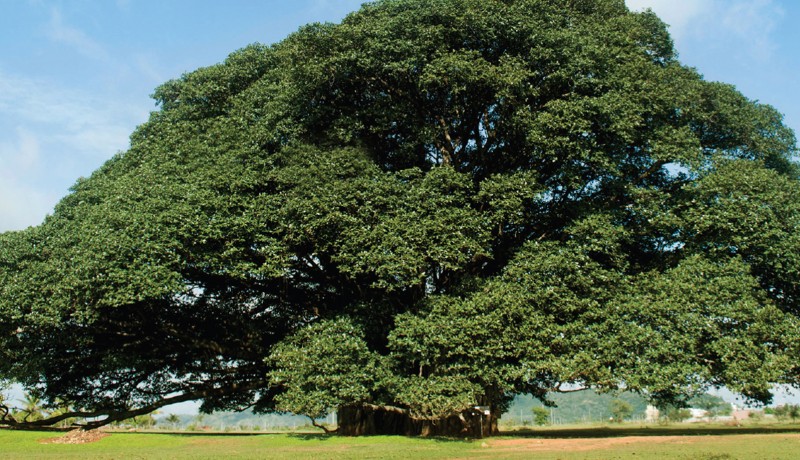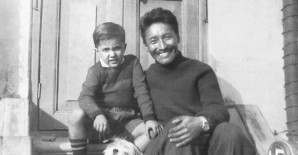
Columns

In a tribute to her grandparents, Dr Sudha Murty recalls the lessons of compassion and empathy she learnt from them
I was very fortunate to have grown up with my grandmothers on either side and grandfather on my maternal side. Both grandmothers lived in villages and had completely different personalities. My maternal grandmother, Krishna, was popularly known as Krishnakka; she was intelligent and sensitive. My paternal grandmother, Amba, was called Ambakka. She was quite the daredevil, yet practical and accommodating. My maternal grandfather was a schoolteacher and lived in a village called Shiggaon. Called Shiggaon Kaka, he was an idealist.
As I grew up mostly with my maternal grandparents, their influence was more evident in me. I used to call my grandmother Avva, which in Kannada means ‘mother’. We had a farm that had mango and tamarind trees and jowar crop.
Once Avva took me to the farm during summer to show me ripe fruits hanging on the trees. She gave orders to the helper, “Pluck the mangoes and tamarind fruits, but leave one branch on each tree untouched.” I was surprised by her decision. I asked, “Avva, the branches you are leaving out have a lot more mangoes and tamarind fruits than other branches. Will it not be great to get all those mangoes and tamarind fruits home? As there are 13 of us [grandchildren], each one of us will get more fruits.”
Grandmother just smiled and did not reply. She made me sit under the shade of a mango tree in the scorching heat. With the cool breeze blowing gently, I felt good. She gave me a glass of water first and then a glass of lassi. I pressed for an answer again. “Avva, you did not reply to my earlier question.”
She said, “You might have seen the rivulet that flows next to our land. Does it drink its own water?”
“No!” I replied to her ‘foolish question’, or so I thought.
“The lassi you drank now came from where?” she asked me.
I smelt her ignorance and said, “Cow.”
“Does cow drink her own milk?”
I laughed and said, “Never. I have seen the cow eating grass always.”
“Have you seen the mango or tamarind trees eating their own fruits?”
I laughed and said, “They never eat their own food. They require water and manure to grow.”
Then she smiled and said, “Tell me whom does this land belong to?”
“Of course, it belongs to Ajja and you. I have seen the papers you have kept in the drawer.”
“Before that it belonged to whom?” asked my grandmother.
“Maybe your parents or his parents.”
“And before that?”
“I don’t know the answers to all these difficult questions Avva. But I guess, long ago this area would have been a forest and later it might have been converted into a farm to grow edible things. Avva, you have not answered me and are talking irrelevant things instead.”
“My child, you have already found the answer to your question. Yes, this land was a forest once upon a time and many animals and birds lived here. They owned this land the way we own now. As we can talk and express ourselves, we made a paper in our name and they could not. We cut the trees and built our homes where once they had their homes. We cultivated their land without their permission. That is the reason I don’t take all the mangoes and tamarind fruits and jowar from a part of the land. I particularly want the birds to get their due share of fruits, flowers and jowar. The insects should get their dues. Butterflies and honeybees should get their flowers. And I want to tell you one more thing. We should not be too selfish. The rivulet that flows does not drink its own water, the cow that gives us milk does not drink its own milk and the trees that bear the nectar like fruits never eat them. So as a human being, we should not take everything from everywhere and from everybody. I am not educated like you but I have heard a shloka:
Paropakaram vahanti nadyaha
Paropakaram dugdanthi gavaha
Paropakaram phalinthi vrukshaha
Paropakaram idam shariram
(The rivers flow to serve others Cows give milk to serve others The trees bear fruit to serve others This human body is meant to serve others.)”
I can never forget the best lesson I learnt from an ordinary housewife who did not go to school but knew the basic laws of nature, environment, and the purpose of life. It has stayed etched in my mind forever. She is not with me for the past 40 years, but when I think of her, I think of the cool breeze, the shade of the tree, a glass of lassi and the lesson that has made me what I am today.
My paternal grandmother, whom we affectionately call Ajji, singlehandedly used to look after a large piece of cultivable land. In those days, she used to travel by horse. Also, she didn’t believe in the caste system, which was prevalent at that time. She would travel on horseback and inspect the fields and eat along with all the labourers under a tree. Sometimes, she would carry extra roti and laddoo for the labourers during festivals. If she ever got to know that someone’s wife was pregnant, she would carry bottles of ghee and old clothes for them. Once I asked her casually, “Ajji, is there any place you would like to visit?”
She said, “It may not be possible but I have always dreamt of going to Badrinath and Kedarnath, the ultimate abode of the Lord!”
“What would you get by going there?”
“Everyone says you get a lot of punya if you go there.”
“Why can’t you go?”
“Oh! It’s a long journey and it may be difficult for me. But I have found another way of getting punya without going to Badrinath and Kedarnath.”
“What is that?” I asked her, my curiosity peaking.
“If you help women during labour and give them good food, it is as good as going to Badrinath and Kedarnath.”
I liked her spirit and sense of helping people. Her concern for people working under her was amazing. Again, she was an illiterate housewife from a small village. Neither did she attend any philosophical class nor was she in contact with the outside world. She never received any awards either. When her end came, she said, “I would like to die tomorrow which is an auspicious day. It is the day Bhishma died in The Mahabarata. I have led my life like a normal housewife but tried to help people in my own way. If I get another birth, I want to be born as a banyan tree so I can shelter many more people.” And she did die the next day as per her wish, which was amazing!
Whenever I see a banyan tree, its cool shade and the way it shelters hundreds of birds that take refuge in its vastness, I think of her.
Thank you Avva and Ajji, wherever you are. You have touched my life and taught me compassion!
Murty is a well-known social worker and a prolific writer
Featured in Harmony — Celebrate Age Magazine September 2013
you may also like to read
-
Mental workout
Mukul Sharma tells you how to keep those grey cells ticking Everyone will ultimately lose his or her brain….
-
Helpline
Dr Harshbir Rana answers your queries on personal and social issues related to ageing, elder care and intergenerational relationships ….
-
Off the cuff
Raju Mukherji pays tribute to his first hero, Tenzing Norgay, an exemplary mountaineer Darjeeling, 1955. Dr ‘Pahari’ Guha Mazumdar….
-
Yoga RX
Shameem Akthar shows ways to control debilitating ankle pain through regular practice Ankle pain is so common and prevalent….







